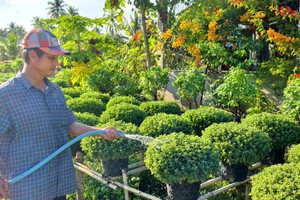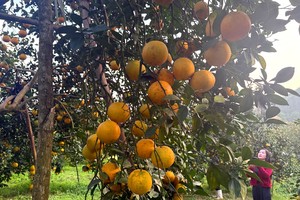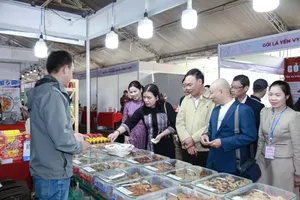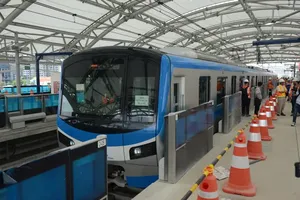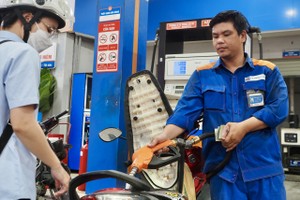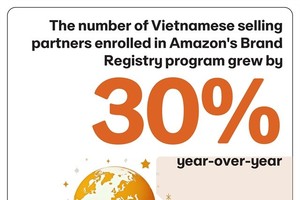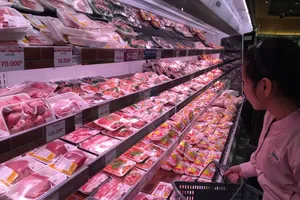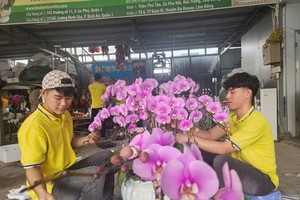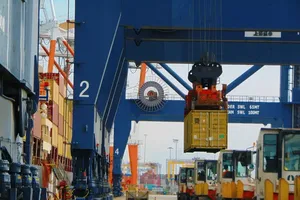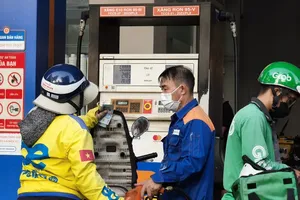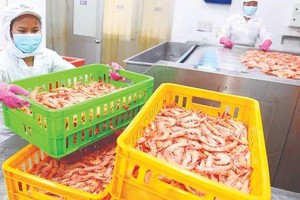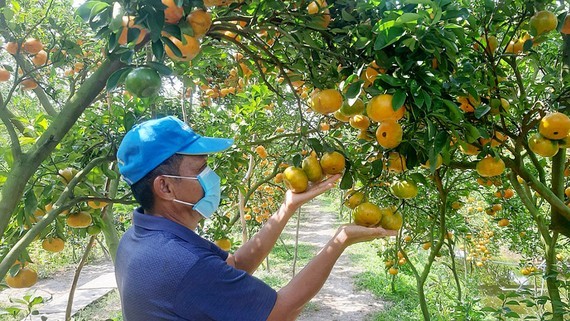 A mandarin orange farm cultivated in line with VietGAP standards. (Photo: SGGP)
A mandarin orange farm cultivated in line with VietGAP standards. (Photo: SGGP)
A growing area codes facilitate the control of product quality while ensuring the origin traceability of agricultural products, they said.
Hoang Trung, Director of the Plant Protection Department under the Ministry of Agriculture and Rural Development (MARD), said grants of codes and management of coded planting areas and packing facilities are the department's top priorities in developing agricultural production and farm produce exports.
The country’s export value from agriculture, forestry and fisheries reached US$36.3 billion in the first eight months of 2022, up 13.1 percent over the same period last year, according to MARD.
Together with the growth in the export value of agricultural products, the agricultural sector must increase the number of new planting regions being granted codes and maintain the management quality of the coded planting areas as well.
The ministry has assigned about 90 percent of the coded planting regions to the localities managing their quality of them since 2021.
Localities are responsible for granting the code to the new planting areas and reviewing the areas with codes. Then, they will report this issue to the Plant Protection Department who will review all dossiers requiring granting codes for planting areas before sending the procedures to countries importing local agricultural products to confirm the codes.
Hoang Trung, Director of the Plant Protection Department under the Ministry of Agriculture and Rural Development (MARD), said grants of codes and management of coded planting areas and packing facilities are the department's top priorities in developing agricultural production and farm produce exports.
The country’s export value from agriculture, forestry and fisheries reached US$36.3 billion in the first eight months of 2022, up 13.1 percent over the same period last year, according to MARD.
Together with the growth in the export value of agricultural products, the agricultural sector must increase the number of new planting regions being granted codes and maintain the management quality of the coded planting areas as well.
The ministry has assigned about 90 percent of the coded planting regions to the localities managing their quality of them since 2021.
Localities are responsible for granting the code to the new planting areas and reviewing the areas with codes. Then, they will report this issue to the Plant Protection Department who will review all dossiers requiring granting codes for planting areas before sending the procedures to countries importing local agricultural products to confirm the codes.
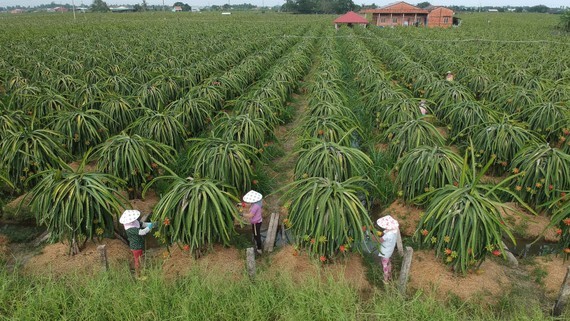 Securing plant growing codes is a must for dragon fruits before exporting to other countries. (Photo: SGGP)
Securing plant growing codes is a must for dragon fruits before exporting to other countries. (Photo: SGGP)
The localities have been assigned to manage and maintain the coded planting areas and packing facilities. According to the Department of Crop Production, 50 out of 63 Vietnam's provinces and cities across the country have been granted a total of 4,000 planting area codes for fruit, rice, coffee, pepper, cashew and wood. The Mekong Delta province of An Giang is a typical example. As a locality that supplies a large volume of raw materials for export, such as rice, fruit and aquatic products, developing coded planting areas and facilities is essential to improving the value of agricultural products as well as exploiting the advantages of local produce. Truong Kien Tho, Deputy Director of the An Giang province's Department of Agriculture and Rural Development, said the province had granted codes for 252 planting areas and 21 packaging facilities, including 146 planting areas of fruit trees, one area of vegetables (chilli) and 105 areas of glutinous rice. In particular, An Giang is promoting coordination with enterprises exporting farm produce in developing coded areas planting rice and glutinous rice, and fruits exported to high-end markets such as Australia, the US, the EU, Japan, China, New Zealand, and the Republic of Korea. It plans to develop and grant codes for 1,800 planting areas for agricultural products and 30 packaging facilities in the province by 2025, Tho said. He underscored the importance of managing the quality of the coded planting areas as well as granting the codes for new planting areas to meet the increasing demand of the world market.
